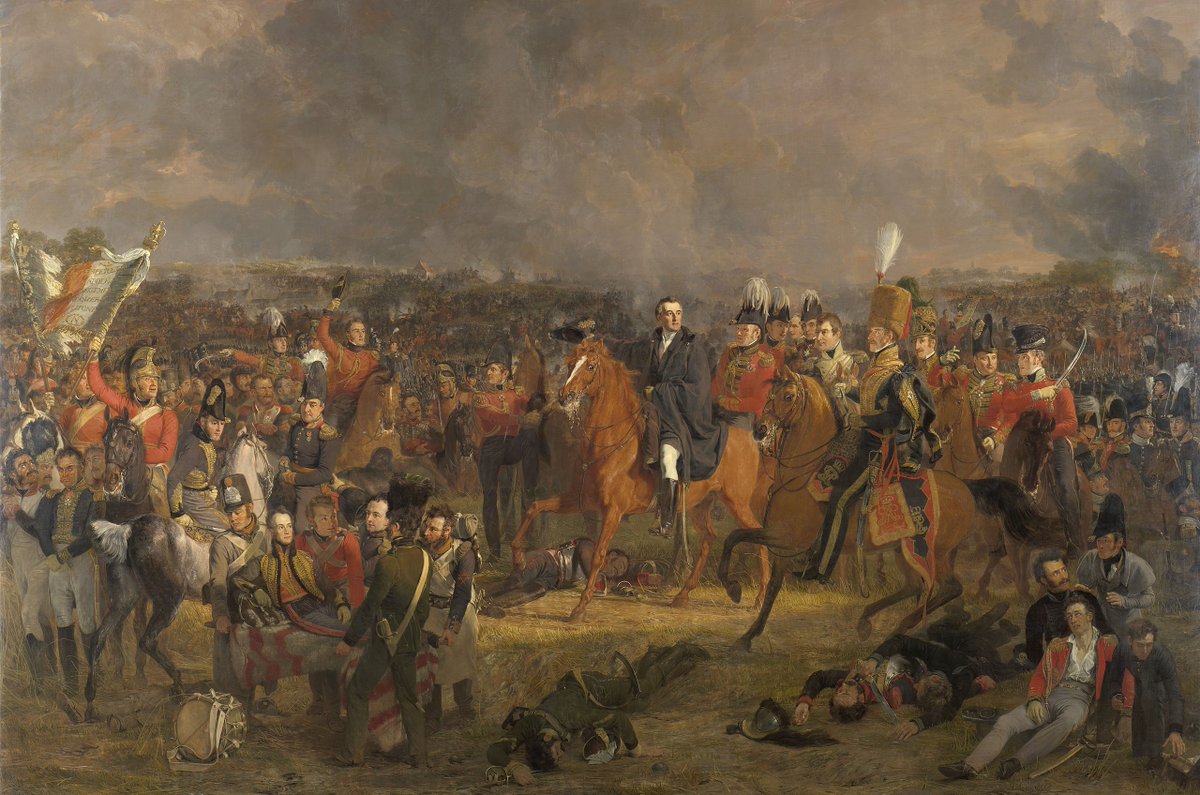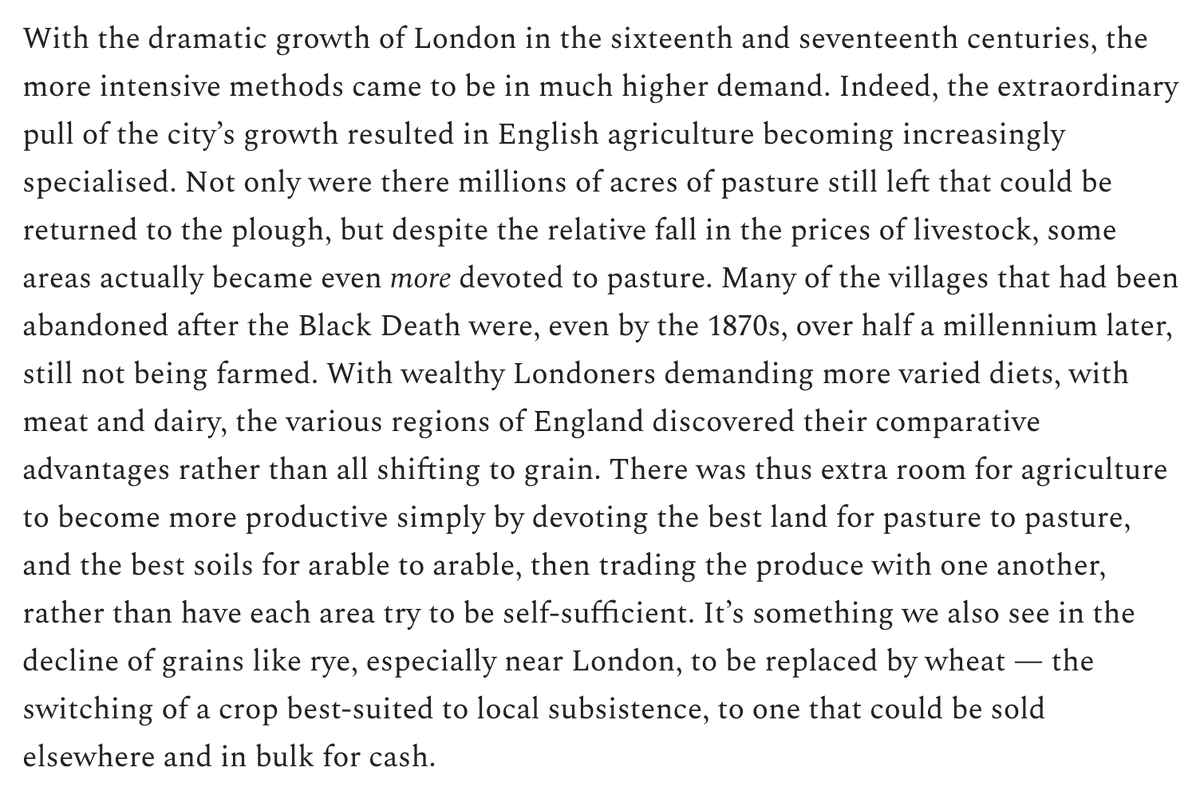
We've long known that growth during the classic IR of 1760-1820 was slow, and that major increases in real GDP per capita did not really occur until the early nineteenth century. 2/ 

What we're less sure about is why. One popular rationale—to which I largely subscribe—stressed inherent factors, such as the lag-times in technological adoption, development, and diffusion, or the inevitably slow rate at which the "modern" sector outgrows lagging sectors. 3/ 

But British growth was *really* slow by historical standards. Output per capita rose by .42 percent per annum from 1759 to 1801 and by .62 percent per year until 1851. The Third World average in the 1970s, by all accounts a difficult period, was. 3.2 percent—5-10 times faster. 4/
British industrialization also had some strange features. One was a very weak rate of capital accumulation (1.5-1.6%), such that much of the growth came from total factor productivity. In antebellum America, only 27% came from TFP; in the Third World, 10%. 5/
This was largely because British saving and investment were very low; the investment share in GDP was 9-10 percent in 1760 and 14 percent in 1850. Savings rates in the Third World (20.1%), Meiji Japan (14.8%), and 19th c. America (28%) were much higher. 6/
Lackluster capital accumulation—worse than in labor-intensive industrializers—is part of the explanation of slow growth. But why was saving so weak? 7/
One potential reason: Britain's incessant wars with France. It's often overlooked in IR economic histories (mentioned twice in passing in Allen's book), but Britain was at war in 36 of the 60 years from 1760 to 1820. 8/ 

These wars—Seven Years', Revolutionary, Napoleonic—became increasingly expensive as the 18th century wore on. Britain's competitive edge became outspending its adversaries, partly through increased tax collection, but in large part via debt. 9/ 

By the end of the Napoleonic Wars, the national debt was 2 times GDP, higher than United States at the end of the WWII (1.3) or today (1.25). If one counted net additions to public borrowing, the British savings rate was a much more respectable 18%. 10/ 

Jeffrey Williamson argued that war finance "crowded out" private investment. This was exacerbated by usury laws restricting interest rates on mortgages and bonds at 5%, but not public debt. Once interest rates exceeded that, public liabilities replaced private 1-for-1. 11/ 

He modeled the effects of debt, wartime price inflation, and military mobilization on the civilian economy and found that growth would have been substantially higher had Britain been at peace. Real wages would have been 65% higher in 1801 had 1759-1801 seen no conflict. 12/ 

Since growth rates nearly doubled after the conclusion of peace, coincident with a rise in private investment (to 14% by 1850), he attributed Britain's early stagnation to its military commitments. 13/
There were empirical problems with the Williamson thesis. Interest rates did not appear to be sensitive to the level and only weakly correlated with additions to the debt. Capital markets didn't really seem to be over-taxed, as Williamson supposed. 14/ 

The critique isn't fatal, however; there's evidence to suggest that interest rates were going to decline during the war anyway, and there have been sound recent arguments that the usury law makes rate-focused analysis useless anyway. 15/
The long-term implications might not have been severe, either. As my co-author @nunopgpalma points out in a paper with Patrick O'Brien, war may have later increased British welfare by securing imperial hegemony and facilitating financial development. 16/
But if war partly caused Britain's slow start, the implications would be vast. Sluggish growth in living standards may have had "little to do with the underlying forces of capitalist development" and more to circumstance—the insecurity of the 18th c. economic world. 17/
This, of course, is but the extended preview for this week's newsletter, which you can read here:
daviskedrosky.substack.com/p/all-quiet-on…
daviskedrosky.substack.com/p/all-quiet-on…
This is probably the motivating question: why do so many indicators of British growth *worsen* during the early IR?
https://twitter.com/ACJSissons/status/1432770831650856963
• • •
Missing some Tweet in this thread? You can try to
force a refresh













